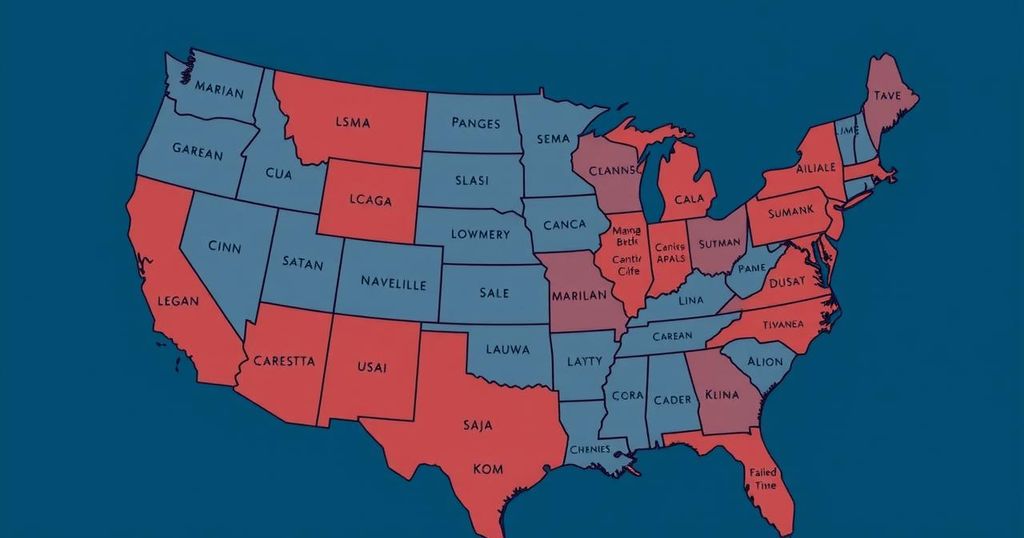Voters across the U.S. rejected numerous election reform proposals focusing on ranked choice voting and open primaries, despite a $110 million advocacy push. The defeats spanned diverse states, indicating a strong preference for traditional voting methods. Advocates are now reconsidering their strategies, aiming to build grassroots support and differentiate between various reform initiatives for future efforts.
Voters across the United States overwhelmingly rejected various election reform measures during the recent elections, despite a significant financial push of over $100 million from advocates. This rejection occurred in states with diverse political orientations, including Arizona, Colorado, Idaho, Missouri, Montana, Nevada, Oregon, and South Dakota. Proposals involved initiatives for ranked choice voting and open primaries, which aim to broaden voter choice by allowing candidates from all parties on the same ballot and enabling voters to rank candidates by preference.
The defeat of these measures has led advocates, such as John Opdycke, president of Open Primaries, to acknowledge shortcomings in readiness for these reforms. Historically, there had been some optimism after Alaska’s narrow approval of similar reforms in 2020 and Nevada’s initial approval in 2022, but this year’s elections reversed that momentum. For instance, in Alaska, a recent attempt to repeal open primaries fell just shy of success, indicating a divided stance among voters. Furthermore, while some areas like Washington, D.C., and certain municipalities adopted ranked choice voting, the larger landscape suggests significant resistance to major reform initiatives.
Opponents argue that many Americans are content with traditional voting methods, noting that ranked choice voting can be confusing and may discourage participation. Academic research highlights that minority groups may underutilize ranked options, while experts express concerns about its effectiveness in mitigating political polarization. As organizations reassess their strategies, they may consider separating efforts to reform primary voting from those advocating ranked choice voting or focusing on more piecemeal legislative changes. Leaders from groups like Unite America have indicated a commitment to continued advocacy, aspiring to refine their approaches based on voter feedback and support before pursuing future initiatives.
The discussion surrounding election reform in the United States has gained traction over recent years, driven by frustrations over traditional voting methods and a desire for greater inclusivity. The recent elections marked a pivotal moment as several states considered measures aimed at implementing ranked choice voting and open primaries. Despite substantial funding from reform advocates, these proposals faced substantial voter resistance, leading to a reflection on the challenges of enacting change in political processes. The broader voter sentiment appears supportive of maintaining the conventional election framework, even amidst ongoing dissatisfaction with the political landscape.
In conclusion, the rejection of proposed election reforms in various states illustrates a significant gap between advocacy efforts and public readiness for change. While substantial financial investments were made to promote innovative voting systems, the outcomes suggest that many voters remain comfortable with traditional methods. Moving forward, advocates may need to adjust their strategies to build grassroots support and reconsider the pace and nature of reform initiatives to align more closely with voter preferences. The future of election reform remains uncertain as groups reassess their approaches in light of recent electoral feedback.
Original Source: mynorthwest.com







